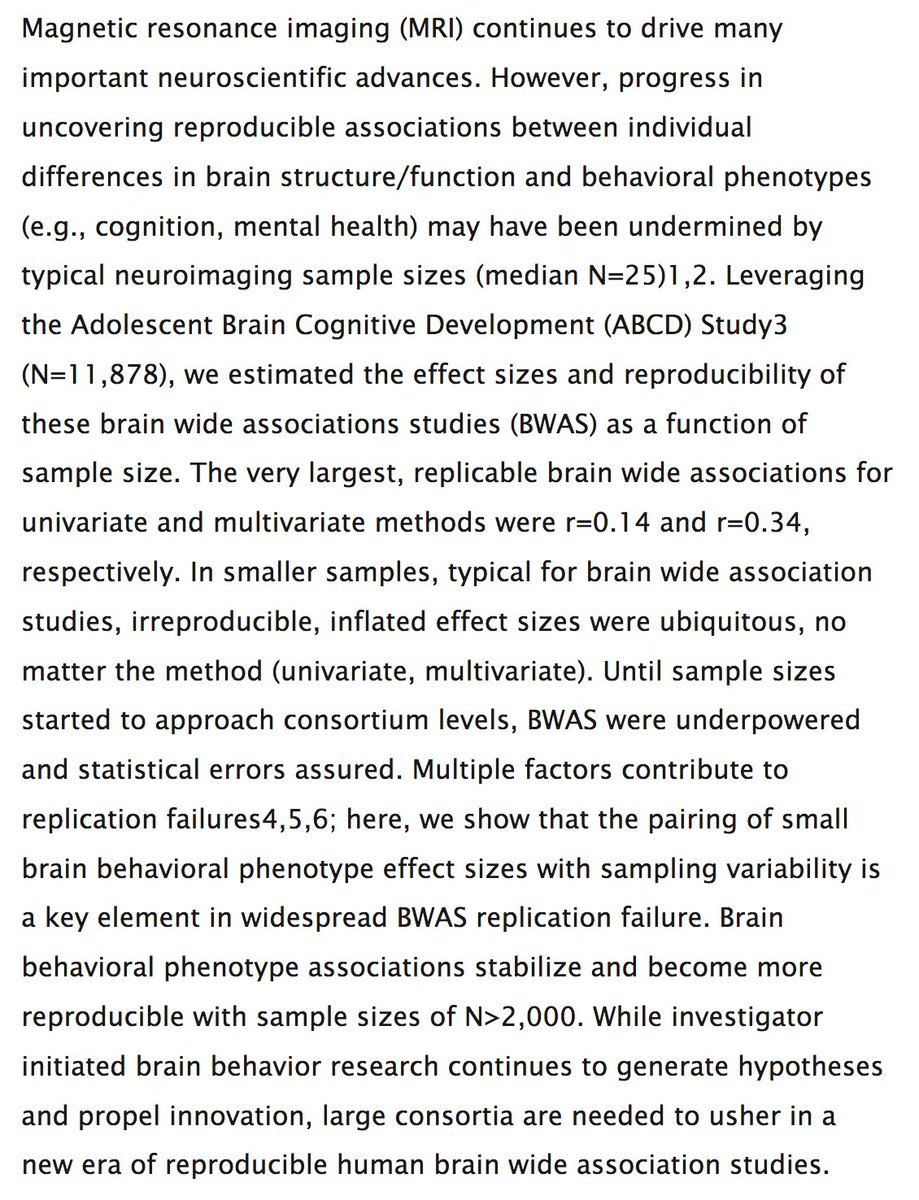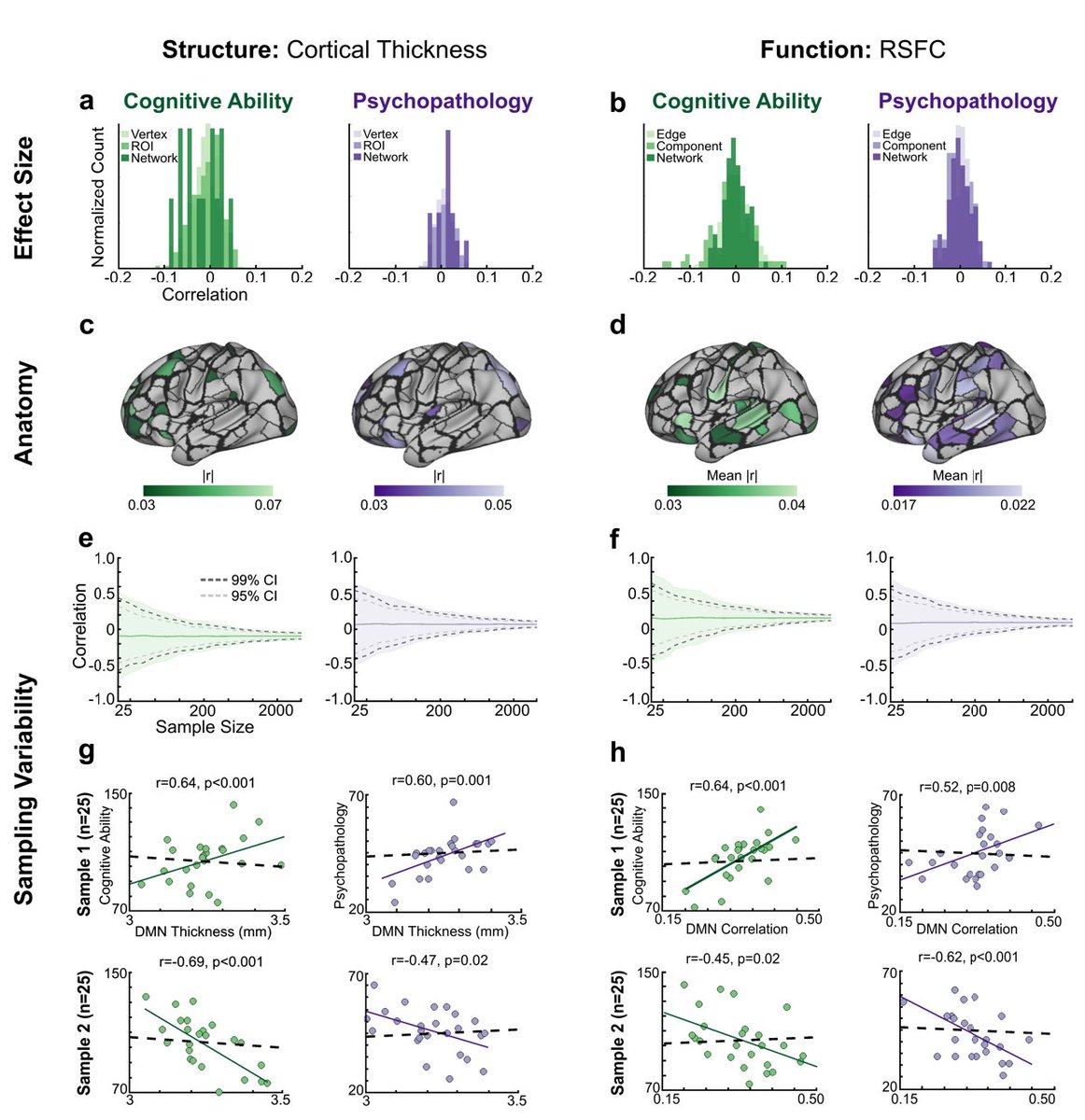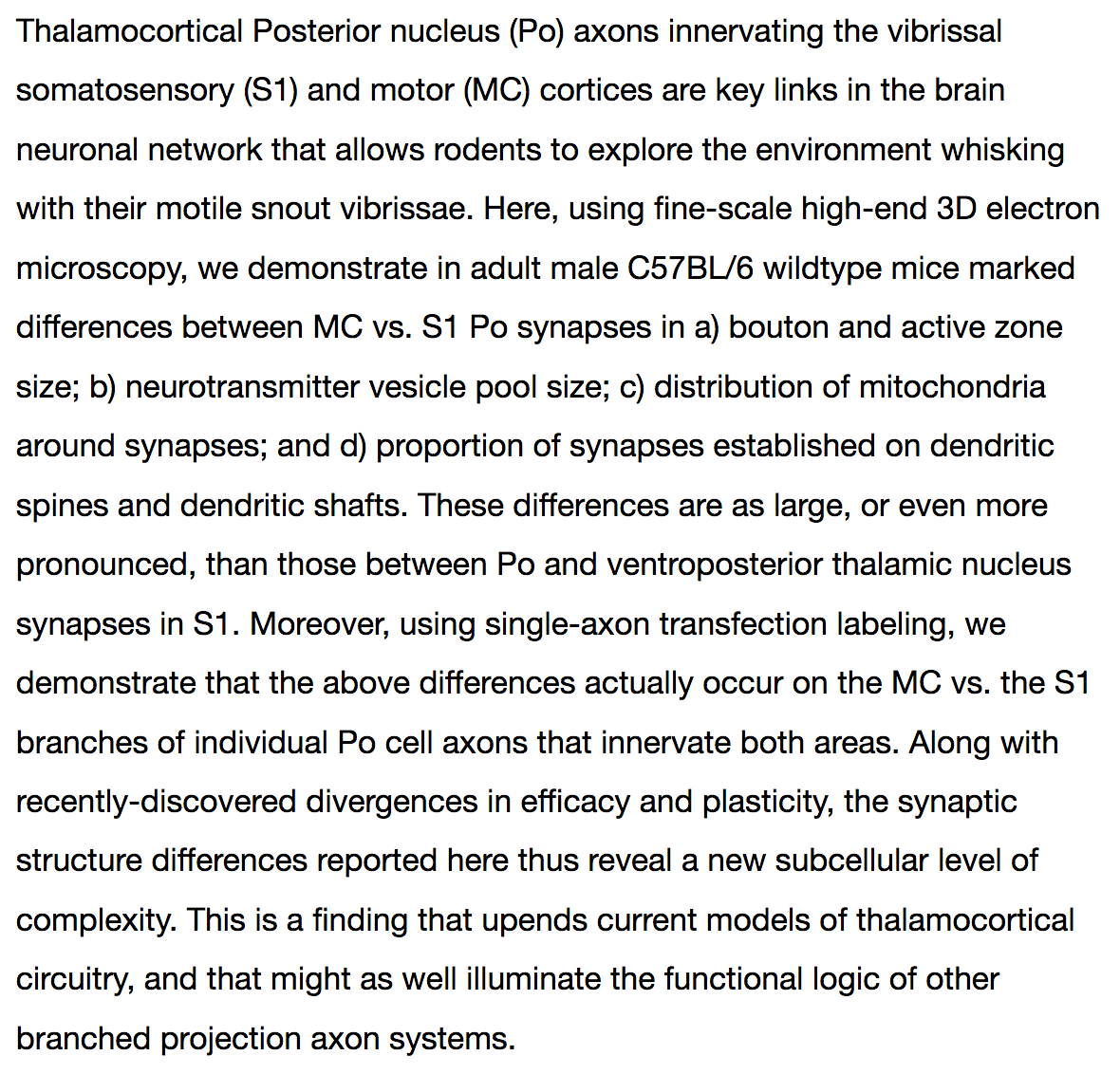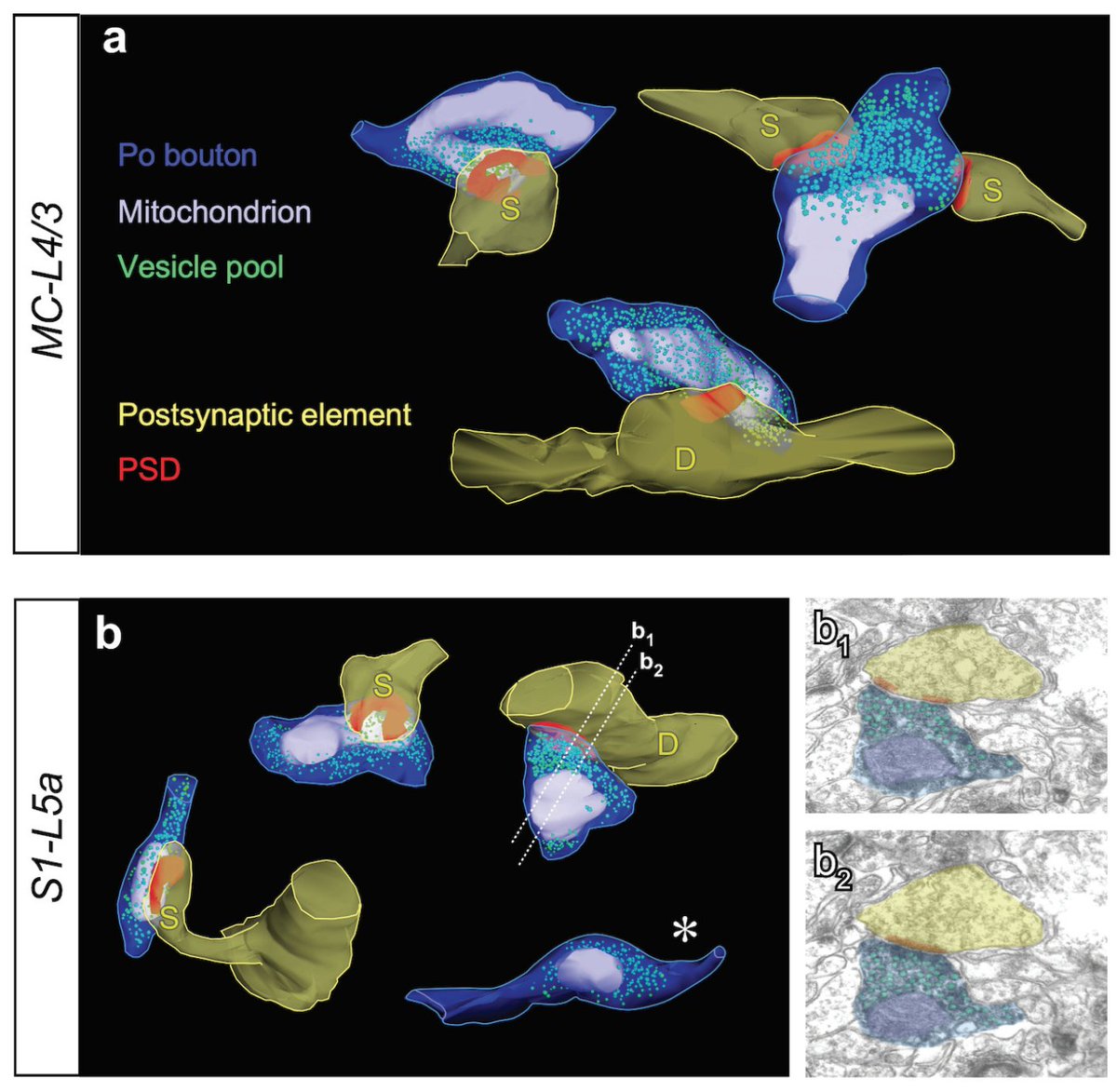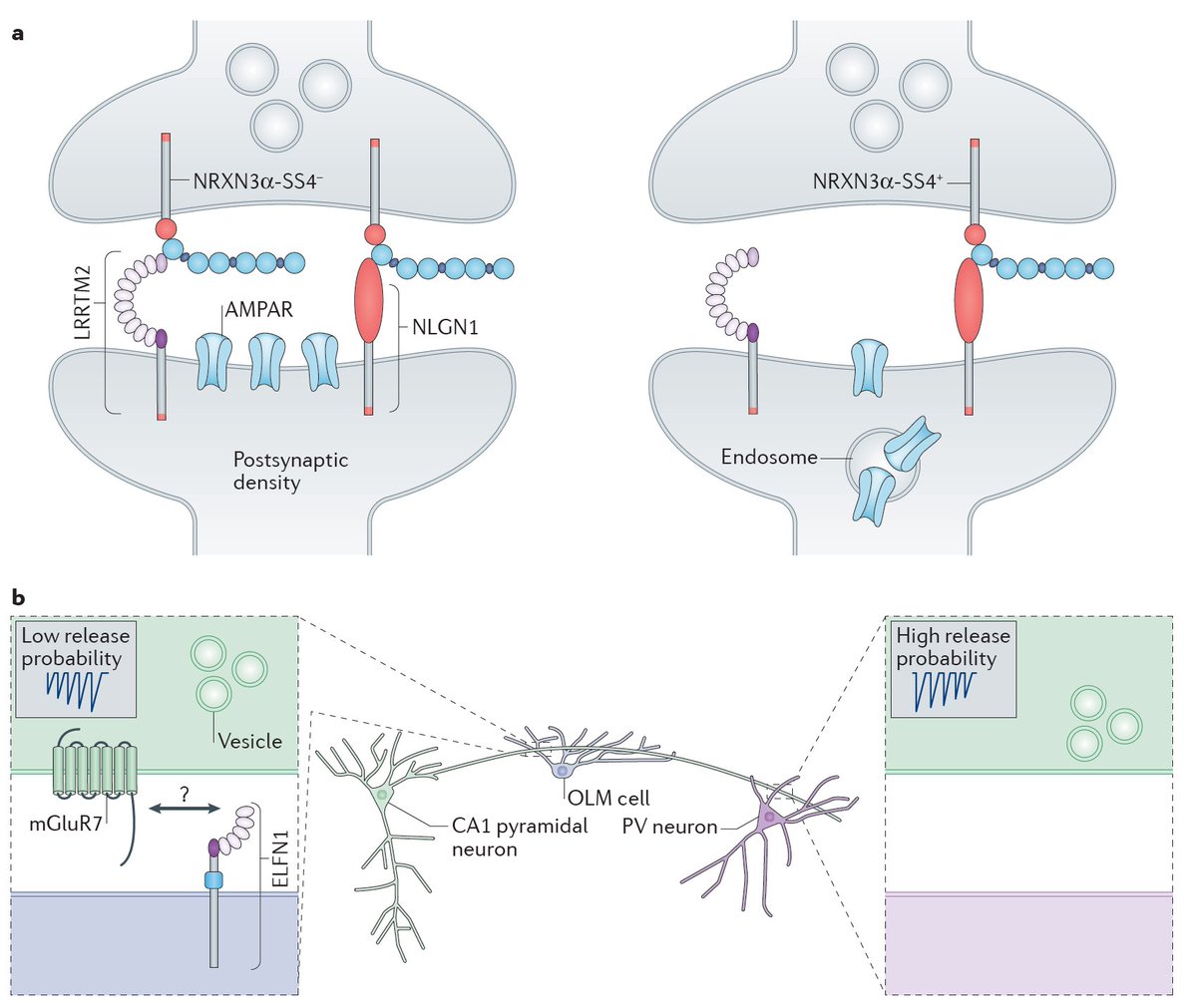
I think @Lise_Eliot and colleagues have done a real service to the field in performing this exhaustive meta-analysis of the messy literature on sex differences assessed by neuroimaging
https://twitter.com/Lise_Eliot/status/1373315409475072001cc @bogglerapture @StuartJRitchie
Longish thread: *Assessed by neuroimaging* is important here, as it’s an extremely gross level at which to look for differences, compared to what can be done in other animals (where lots of fine differences are observed).
So there could, in the first instance, be NO sex differences observed by neuroimaging and that would not have any bearing on whether differences exist in microarchitecture, distribution of cell types, synaptic connectivity, gene expression profiles, cellular physiology, etc.
Neuroimaging is just really crude, frankly, and there is no reason at all to think that sex differences in behaviour should be explained by or even related to the relative *size* of little bits of the brain wiringthebrain.com/2020/08/are-bi… 

But, many such differences have been reported and Eliot et al comprehensively show the variability in these findings, with only a minority showing consistency across studies.
They’re absolutely right to reject the idea of sexual dimorphism (two distinct forms) and to emphasise that any sex differences that do exist are small (but systematic) relative to MUCH larger (non-systematic) individual differences
This is why it's wrong to conclude that the brain is a "mosaic" of male and female regions in each of us: wiringthebrain.com/2017/08/debunk…
@Lise_Eliot et al's main claim is that the differences observed in size of various bits of the brain or in grey/white matter ratios or connectivity patterns are DRIVEN BY the overall difference in brain size (with male mean ~11% bigger)
A few things spring to mind: 1. Even if all the differences were driven by overall brain size, that’s still a difference. And if you think relative size of bits of the brain is important (which the authors seem to), then you’d still get functional differences because of it.
It’s like saying men don’t really have longer arms than women, because if you correct for overall height that difference “disappears”. But if you want something down from a high shelf…
(And no, I'm not implying there's a cognitive equivalent, just illustrating what I think is a flaw in the argument...)
2. Many studies correct for brain size, as discussed, and many local differences survive this correction, with some such areas proportionately larger IN FEMALES than in males. (And some of these are consistent in the meta-analysis, though only a minority)
3. The authors show that multivariate classifiers are strongly driven by overall brain size but they can still be up to 70% accurate in assigning sex from neuroimaging scans, even after correcting for overall brain size.
4. If, as the authors suggest, there is just a single dimension of variation (overall size) that drives all the local differences, why would you get a binary classifier at all when the overlap in brain size is so great?
Say you just took males, and assigned them to two training sets slightly offset in mean brain size (by ~11%), would you get a classifier to distinguish these two arbitrary ‘groups’ in a test set? (Maybe you would, it’s an honest question…)
A stricter test would be to take neuroimaging data from males and females and see if an unsupervised approach would cluster them – i.e., would it “find” sex as a systematic principal component of variation?
Overall, I think the study by @Lise_Eliot and colleagues presents a challenge to the neuroimaging field to be more rigorous in the study of sex differences and to really see if there is anything consistent across samples (which can include overall size and its correlates).
But for me it reinforces the broader point that neuroimaging is just not a great tool to use to assess this question because we don’t know what gross structural neuroimaging findings mean anyway (if anything)
Finally, the idea that there would be no sex differences in humans is sort of bizarre, given their ubiquity in other species and strong reasons for their existence...
At the same time, the idea that every difference we see in human behaviour is explained by such biological differences is naïve and simplistic. aeon.co/essays/the-gen… via @aeonmag
• • •
Missing some Tweet in this thread? You can try to
force a refresh

